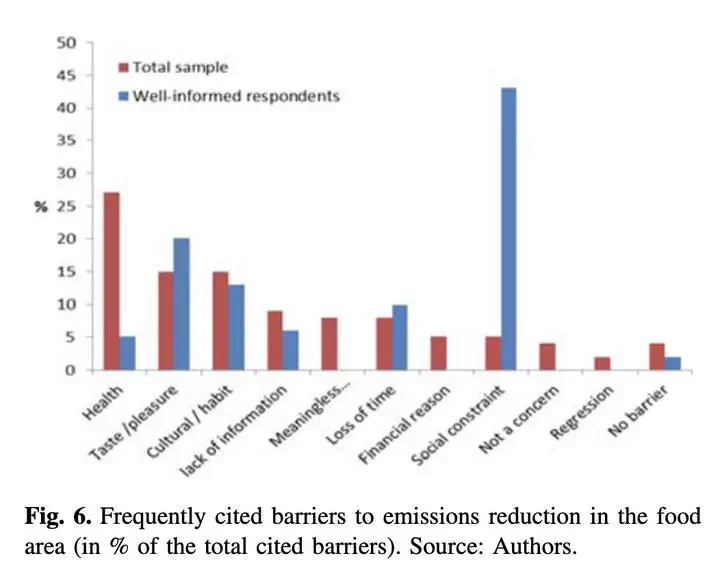Demand-Side Mitigation Options of the Agricultural Sector: Potential, Barriers and Ways Forward

Abstract
This paper reviews the potential and barriers of demand-side mitigation options in the agricultural sector based on the recent academic literature and on a survey conducted on a sample of 788 respondents living in France. The mitigation potential of such measures as reducing losses in the food supply chain and shifting diets toward less animal products is estimated to be particularly high, higher, in particular, than supply-side mitigation options. However, to ensure that these measures do not entail a reduction in protein intake, these estimations should consider both caloric and protein units, and take into account the digestibility differentials between protein sources. Our survey shows that people are relatively reluctant to eat more sustainably, preferring to reduce their emissions in other areas such as housing or equipment. This relative reluctance is mainly due to individual perceptions linked to health concerns, taste or habits. Some obstacles could easily be overcome through well-designed policies aiming to, for example, advertise a lower consumption of red meat for health benefits. National governments are, however, rather inactive on this topic, leaving the initiative to the civil society.